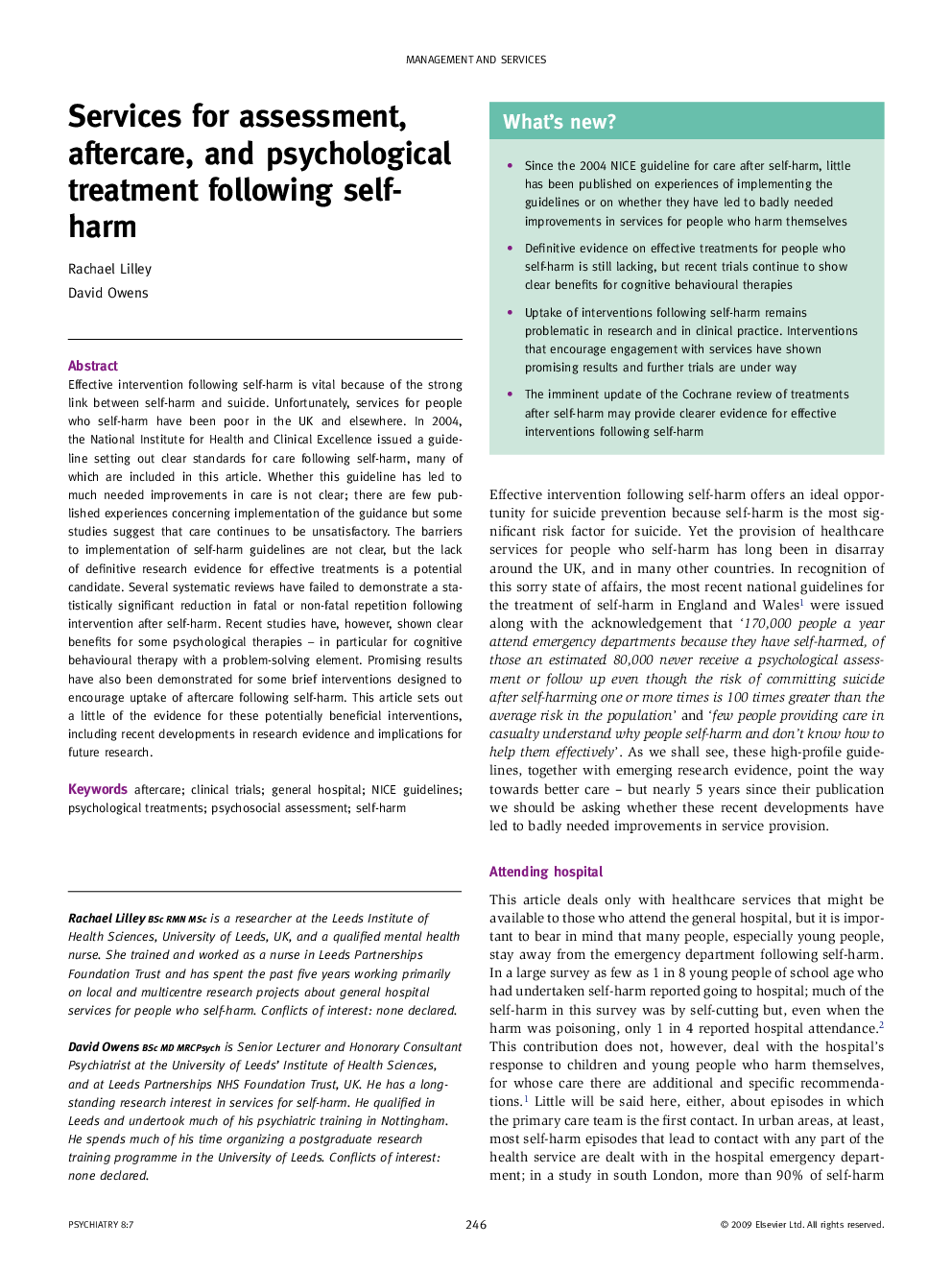| Article ID | Journal | Published Year | Pages | File Type |
|---|---|---|---|---|
| 4189813 | Psychiatry | 2009 | 6 Pages |
Effective intervention following self-harm is vital because of the strong link between self-harm and suicide. Unfortunately, services for people who self-harm have been poor in the UK and elsewhere. In 2004, the National Institute for Health and Clinical Excellence issued a guideline setting out clear standards for care following self-harm, many of which are included in this article. Whether this guideline has led to much needed improvements in care is not clear; there are few published experiences concerning implementation of the guidance but some studies suggest that care continues to be unsatisfactory. The barriers to implementation of self-harm guidelines are not clear, but the lack of definitive research evidence for effective treatments is a potential candidate. Several systematic reviews have failed to demonstrate a statistically significant reduction in fatal or non-fatal repetition following intervention after self-harm. Recent studies have, however, shown clear benefits for some psychological therapies – in particular for cognitive behavioural therapy with a problem-solving element. Promising results have also been demonstrated for some brief interventions designed to encourage uptake of aftercare following self-harm. This article sets out a little of the evidence for these potentially beneficial interventions, including recent developments in research evidence and implications for future research.
